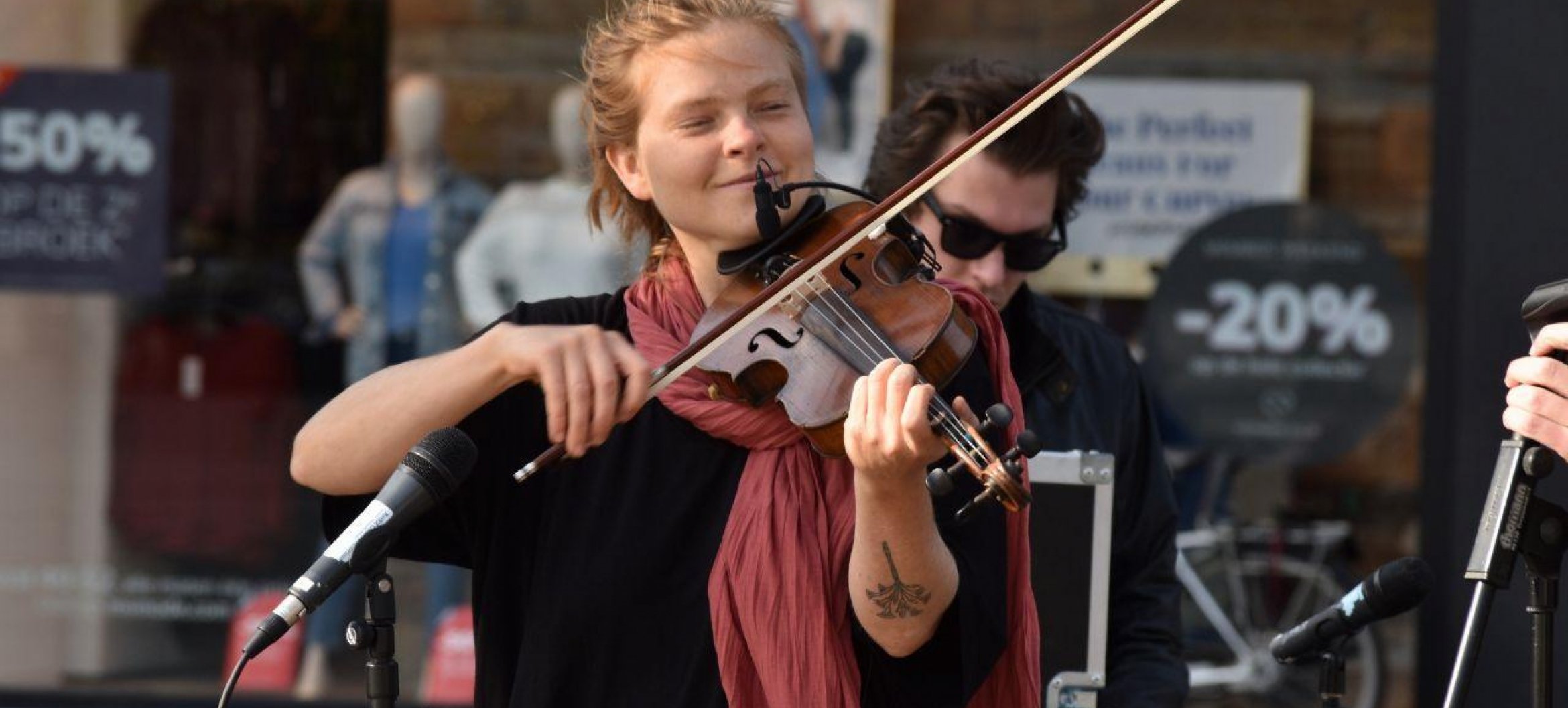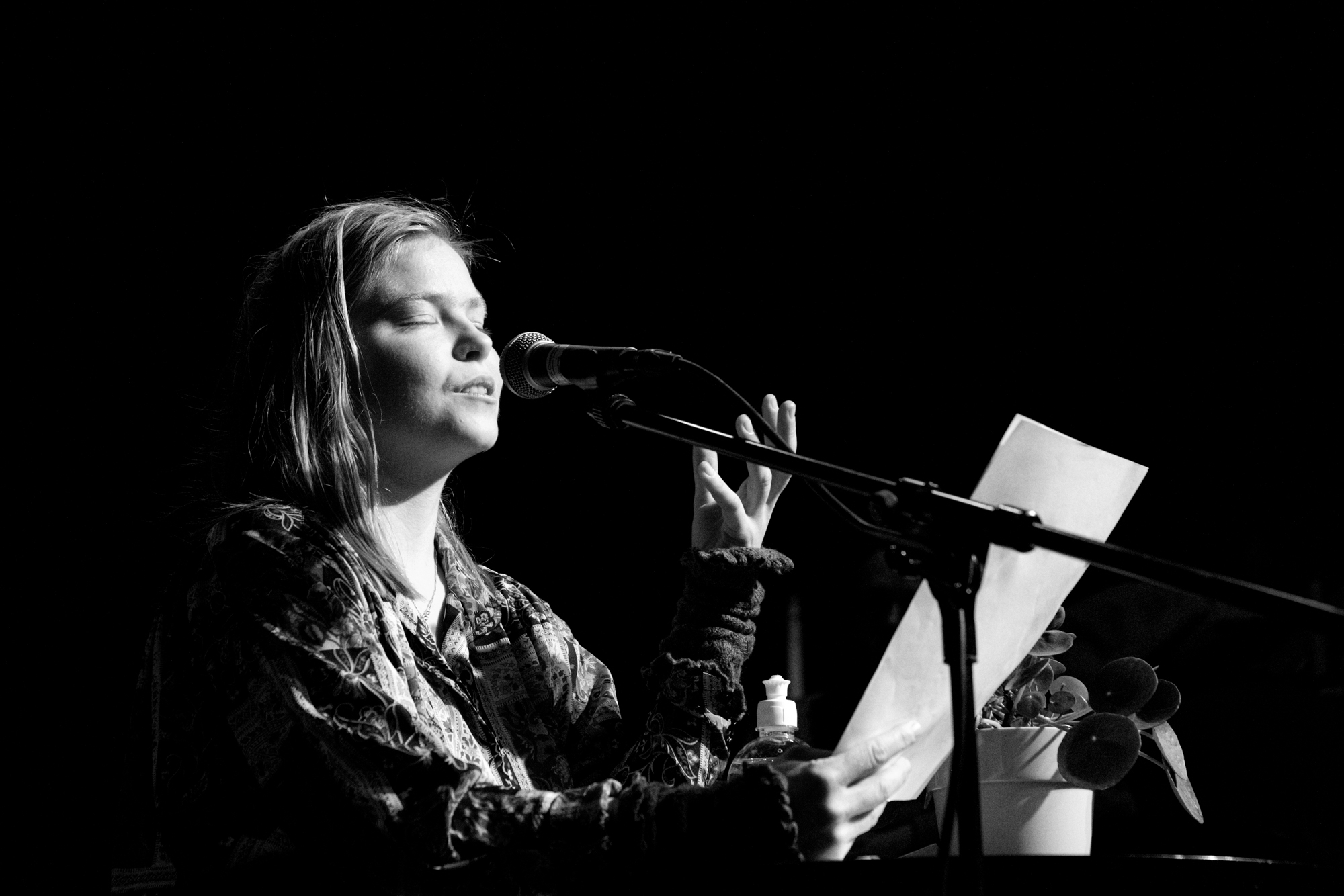Mira did an internship in Israel: ‘Music can reconcile the greatest differences’
With music therapy you can keep it small, local and close, but Mira thinks bigger. She goes to Israel and to refugee camp Moria, to make music with people from different cultures: ‘I don’t come to tell people how to do things, but rather to learn together with others.’

Getting in touch with people and with herself, that is what Mira is after. Studying music therapy fits in well with that. ‘I wanted to know how to use music as a means of communication, without using language. With music therapy you can come closer to your feelings more easily and allow room for them. It can also help to reach feelings or thoughts that are somewhat hidden. In that respect, music therapy can be quite confronting. After all, music affects everyone, regardless of their background. Music activates something, brings about something.' Also in Mira. ‘I found that interesting about the study. I was curious what it would do to me. Music therapy is a great way for me to get to know myself.’ The course at ArtEZ was a good fit. ‘The focus here is very much on music and I was given the freedom to flesh out things the way I wanted, allowing me to dive even deeper into the music.’
No beaten track
But it didn’t stop there, because Mira wanted more. She wanted to go out into the world. The German-born student is not exactly a stay-at-home: at age 15 she had already lived in Argentina for a year and was sure that she did not want to stay in Germany after secondary school. So no beaten track, except for one track, that of her mother. ‘My mother is also a musician and also studied music therapy. I started playing the violin when I was 9, but I didn’t really focus on it, because I didn’t want to become a musician like my mother,’ she says laughing. In spite of herself, Mira became a music therapist after all: ‘But different from my mother, mind!’
Using music to bring conflict to the surface
Mira didn’t make it easy on herself and didn’t choose to solve a problem of an aunt or neighbour, but sought it on a global scale in one of the biggest conflicts in the world. She left for Israel to do an internship. Mira participated in a short course there in which Arab and Jewish people used music to enter into dialogue with each other. ‘We wanted to explore there how we can use music to bring conflict to the surface and talk about it. How can you understand each other without having the same background?’ Not judging each other proved to be an important factor. ‘We use music in particular as our starting point. What does this music do to me and how do I react to it? We emphasised the difference between observation and interpretation.'
Body awareness
In addition to this course, Mira looked for other challenges in Israel: ‘I worked in a hospital for children with cancer and participated in a programme at the university for people with intellectual and sometimes physical disabilities.’ In that programme, the students could practise with music, write their own songs and give performances. ‘One of the underlying music therapy goals here was to create body awareness. They often missed that. For example, by doing breathing exercises, they were not only able to play the saxophone better, but also to better regulate their breathing in general.’

Becoming richer from meeting new people
It was not only her students who became wiser. Mira saw confirmed what she already suspected: ‘I become richer when I meet new people. With everyone, I can show a different side of myself. That’s why it is important to visit different places, meet people and experience cultures. As a community, we are too scared of what we may lose when we meet others, whereas in fact we can gain a great deal.’ Her Music for Moria project was born from this idea. With a number of others, she raises money and seeks to raise awareness of the conditions of people in refugee camps on the borders of Europe.
Real contact
Good contact is the basis for every therapeutic relationship, and also a way to make the world a little prettier, Mira thinks. ‘Many music therapists work from the emotional part. If you assume that people deal with things the way you would, from your own culture, then you’re teaching people something that doesn’t suit them or you can’t reach them.’ Listening to the other person and not making any assumptions, that is the key according to Mira. Especially now that our cultures are blending more and more, people are going to work and study in different places, but also because people have to flee and people are coming to Europe. ‘Making real contact will only become more important,’ says Mira. ‘And music is an excellent tool for that.’


